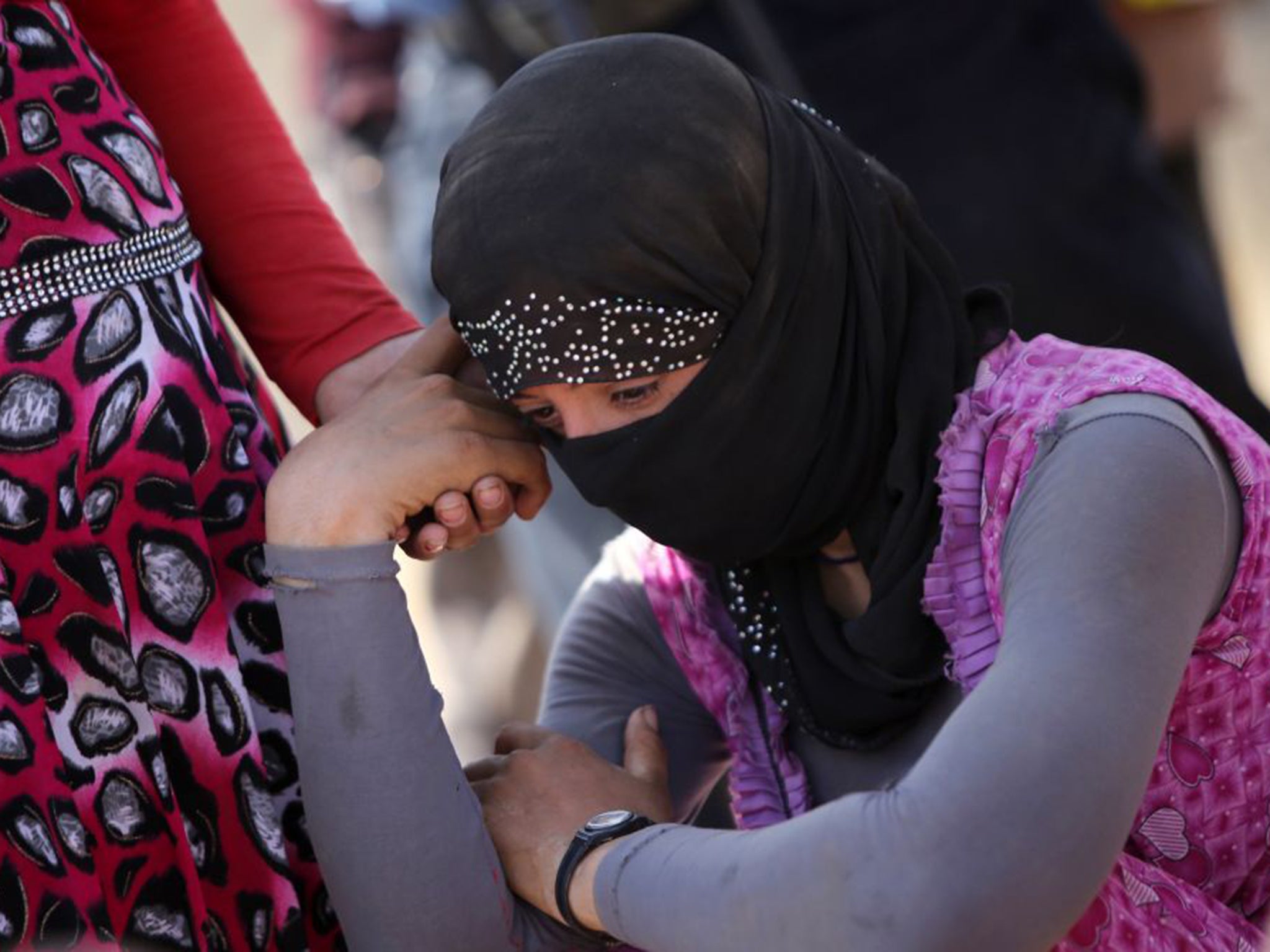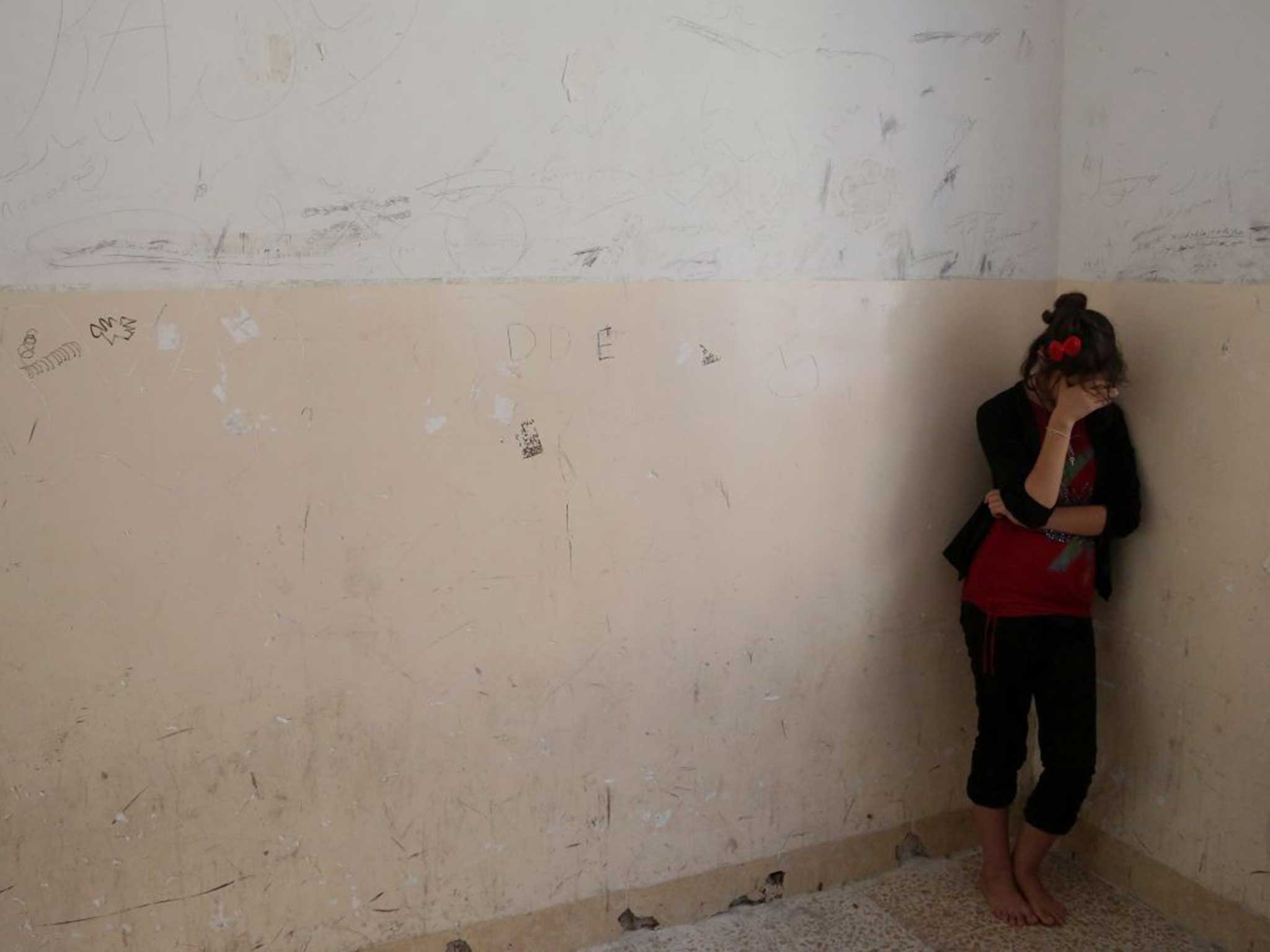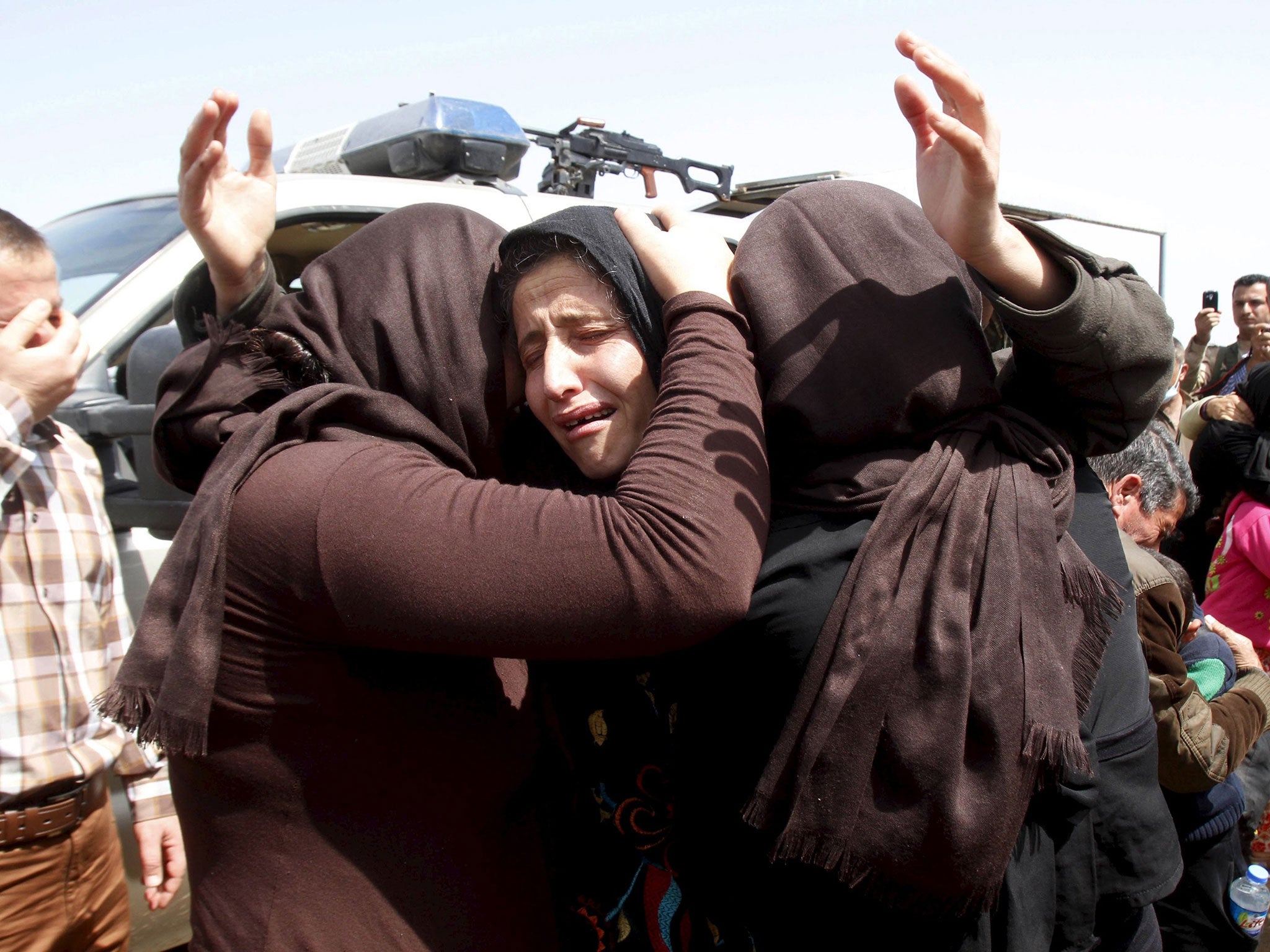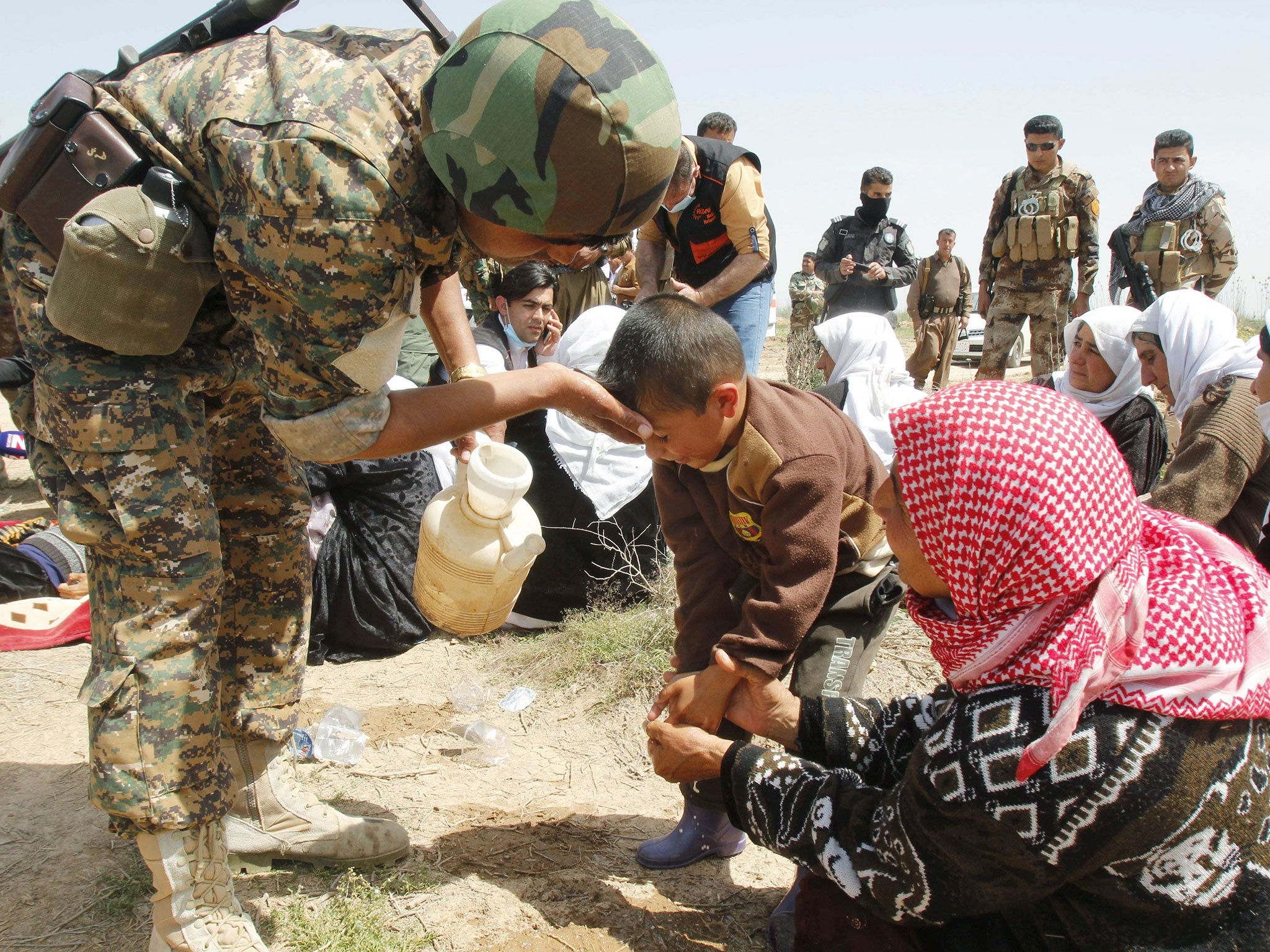Yazidi sex slaves undergoing surgery to 'restore virginity' after being raped by Isis militants
Rape victims returning to their families can face stigma and difficulty marrying

Yazidi sex slaves who were kidnapped and raped by Isis militants and Iraq are undergoing surgery to “restore their virginity” because of fears they will be shunned by future husbands, it has emerged.
Many girls captured as militants swept through Sinjar last year have since managed to escape, although an unknown number remain trapped and subjected to the whims of the men holding them.
Those managing to reach safety, mostly in Iraqi Kurdistan, face being ostracised by their community and even by their family because they have been raped.
Rothna Begum, a women’s rights expert for the Middle East at Human Rights Watch, told The Independent that virginity tests are routinely being carried out, with consent, so the atrocities can be documented.
Girls who were abducted but not raped are also reportedly undergoing the invasive procedures to gain written “proof” of their virginity for marriage.
Fearing they will be ostracised or not find a husband, some former sex slaves are seeking surgery they believe will restore their virginity by repairing the hymen, Ms Begum said.
A health official in the Dohuk region of Kurdistan, where many Yazidi girls are believed to have sought sanctuary after escaping Isis, told her 12 such procedures had been performed by February.
Ms Begum said: “In the most extreme cases, women and girls were so traumatised by the fact they were no longer virgins that they were insisting on this surgery to feel whole again – they feel they have lost something.”
A London clinic offering the procedure said it was carried out under local anaesthetic to “repair” the hymen using dissolvable stitches.
It aims to reconstruct the membrane so it can be broken again on the woman’s wedding night in cultures where blood is required as proof of virginity.
Human Rights Watch has urged the Kurdish and Iraqi authorities to provide rape victims with long-term psychosocial care and realise that even where it is requested, hymenoplasty is only a temporary reprieve for their trauma.
The group also advises against the use of so-called “virginity testing”, which usually relies on the existence of the hymen, even though it can be broken without intercourse.

A Yazidi girl who was raped repeatedly while being held as a slave by a 40-year-old militant when she was just 13, told the Sunday Times she has turned down two suitors since escaping.
“I refused both of them; I don’t want to fall in love,” she said, through tears.
“I don't think I can. I don’t want to be married or have children — I am damaged goods.”
Virginity across Kurdistan in Iraq is usually only referred to for women because the idea is so tied to the physical breaking of the hymen, even though that belief in not medically sound, Ms Begum said.
“Other changes need to happen so girls don’t feel they need a hymen and so that men don’t determine their worth by virginity,” she added.

Isis, also known as the Islamic State, issued guidelines to its fighters last year attempting to justify the taking of non-Muslim women as sex slaves under Islamic law.
“It is permissible to have intercourse with the female slave who has not yet reached puberty if she is fit for intercourse,” one passage declared.
All Yazidis have been declared heretics under Isis’ interpretation of Salafism and have been driven from their homes, enslaved and massacred in territories under the group’s control.
A Human Rights Watch report earlier this year said that the systematic rape and violence against Yazidi women and girls amounted to war crimes and possible crimes against humanity.
“Isis forces have committed organized rape, sexual assault, and other horrific crimes against Yazidi women and girls,” said Liesl Gerntholtz, women’s rights director. “Those fortunate enough to have escaped need to be treated for the unimaginable trauma they endured.”
Girls as young as nine have been raped and sold and traded between fighters as the “spoils of war”.

According to the Kurdistan Regional Government, 974 Yazidis had escaped Isis by the middle of March, including 513 women and 304 children. The UN believes around 3,000 are still in captivity.
A prominent religious leader, Baba Sheikh, decreed last year that returning women should be treated as victims and welcomed back into the community but that has not been the case for all.
Those women and girls face not only stigma over sex outside of marriage, whether it was consensual or not, but also the trauma of pregnancy.
Abortion is illegal in Iraq except in cases where the mother’s life is directly at risk, forcing victims to turn to dangerous “back-street” doctors or bear the children of their rapists, sometimes giving birth at a dangerously young age.
Human Rights Watch is among the groups campaigning to have terminations made legal for rape victims or women at risk of suicide or honour-based violence.
Join our commenting forum
Join thought-provoking conversations, follow other Independent readers and see their replies
Comments